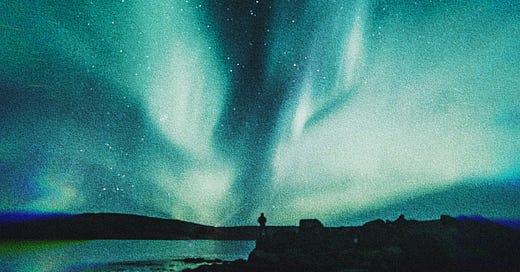If you’ve been disconnected from your creativity for a long time, and the first question you’re asking is “how do I create more”, I need to tell you…
That’s not always a helpful place to start.
Of course, I know why you’re asking that question.
It’s because you long to get back in touch with your creative self. You long to feel creatively satisfied. You long to enjoy creating again, to create for the fun of it, for the joy of it. You want to “create more” because you want to make sure you make the things you came here to make—before it’s too late (and you’re especially worried about time running out).
But if you rush to simply “create more” after months, years, or even the majority of a lifetime disconnected from your creative autonomy, you’re going to bypass some very important aspects of reconnection.
Okay so you might be asking: is it wrong to want to “create more”? No.
If you know me by now you know I don’t actually believe in harsh binaries like “good” and “bad”, “right” and “wrong”, “should” and “should not”—especially when it comes to you and your expression.
You do you. Always.
But. And.
What I’ve noticed: when you’re in a space of creative disconnection, and you rush to simply “create more” (write more, draw more, paint more, etc) the quality of what you make is … lacking.
And so is the quality of how you make it.
Sure. I could prescribe you a schedule, a word count, a daily “butt in chair” routine. I’ve done that to myself plenty of times. I’ve forced myself to sit and write after long and painful periods of intense disconnection. And sure. I got plenty of words out that way.
But I was also fucking miserable.
Here’s the thing. Creating isn’t always easy. Even when you’re fully connected to your creative autonomy and in full self-trust. There are days it’s just challenging. Showing up takes effort, the work is puzzling, the project requires stamina. That’s just the nature of it.
But when you’re connected to your why, your self-trust, your wild creative self, it can feel easeful even on the days the work isn’t easy.
So if you bypass the process of reconnection, of healing the wound of the severance from your creative self, then it will all just feel painful on top of the regular amount of difficult. It will feel like “pulling teeth.” It will feel like a slog. It will feel like a burden. It will feel like agony. It will feel like a struggle.
It is possible for you to feel creatively energized. It is possible for creativity to feel like play. It is possible for creativity to be joyful, pleasurable, and enjoyable.
But first, you must rewild your creativity.
Taking the time to rewild your relationship to your creativity is the step many often skip. It might take a bit more time on the back end to soothe, tend, and nurture your creative wounds—but I promise you the rewards on the other side will be immeasurable.
And to rewild your creativity, you must first tend to the invasive weeds that have grown all over your wild creative terrain—weeds planted there not by you, but by societal systems designed to sever you from your creative autonomy.
All this to say: I absolutely understand the impulse beneath the desire to “create more”. And I definitely think it’s possible to restore your relationship to your wild creative self. But the crucial step people often skip is the step of tending to the initial wounds—tending to the reasons why you were disconnected from your creativity in the first place.
And this brings me to these words I posted to Instagram earlier this week:
So. How to reconnect? How to listen? Below, I’ve crafted some questions to help you get back in touch with your wild creative self.
Witnessing the Wound, Listening toYour Process
What is underneath my desire to “create more”?
Is any part of me using “creative output” as a way to prove my worth as an artist?
If I don’t have much creative output, have I made that mean something? If so, what?
What is actually happening in my creative process right now?
What happens when I allow my creative process the space to communicate with me?
What does my creative process want to tell me in the present moment?
What happens when I honor the intelligence of my process?
What would shift if I were to trust myself, implicitly? How would my relationship to my creativity evolve?
Until next time.
Stay weird,
Lisa











Well this is so fucking timely, as always. Thank you.